Starting his revolutionary activities as a journalist, for Xuan Thuy, journalism was the sword that chased away the enemy, the torch that lit the revolutionary path. His journalism career will forever shine in the history of Vietnamese journalism, closely linked to the revolutionary path, contributing to the nation, to the independence and unification of the country...
A pen handle as a mode dial
Comrade Xuan Thuy, whose birth name is Nguyen Trong Nham, was born on September 2, 1912 in Hoe Thi village, now residential group 4, Phuong Canh ward, Nam Tu Liem district, Hanoi . In 1935, Xuan Thuy left his hometown and entered the path of professional revolutionary activities. Coming to Phuc Yen, he worked as a collaborator for Trung Bac Tan Van newspaper, Ha Thanh Ngo Bao and several other newspapers. To facilitate his activities, Xuan Thuy opened a traditional medicine shop in Khu De Nhat, now Trung Trac street, with a pair of parallel sentences in front of his house: "Xuan hoi thao moc thien hoa phat/ Thuy bat ba lan tu hai binh", meaning "Spring comes, trees and grass bloom, thousands of flowers bloom/ Water has no rough waves, the sea is peaceful". The pen name Xuan Thuy is the first two words of these two parallel sentences.
The press, to Xuan Thuy, was the sword that chased away the enemy and the torch that lit the revolutionary path. On January 1, 1937, Goda led the French Government delegation to Vietnam. The whole country rose up in a movement to welcome Goda, which was essentially a demonstration demanding democracy. Xuan Thuy sent his comrades to lead a large group of people from Phuc Yen to Hanoi. Farmer Le Van Than, who participated in welcoming Goda, was threatened by the Phuc Yen Governor and had his hand struck with a bronze seal. Xuan Thuy drafted a lawsuit for Le Van Than, gave it to his wife and cousin, and secretly sent it to the Party's newspaper Le Travail (Labor), which was later republished in many other newspapers in the country and in France. Under pressure from the press, for the first time, a colonial court called a provincial official to the defendant's chair before a plaintiff, a farmer. This was an unprecedented event in the history of the revolution and the history of the Vietnamese Revolutionary Press.
In 1941, Xuan Thuy was imprisoned in Son La prison for the second time. Here, he and his comrades published Suoi reo. This was a very famous prison newspaper, which was widely circulated outside and even among the French soldiers; it resonated when the Party had not yet won power and had a very glorious position in the history of Vietnamese journalism.
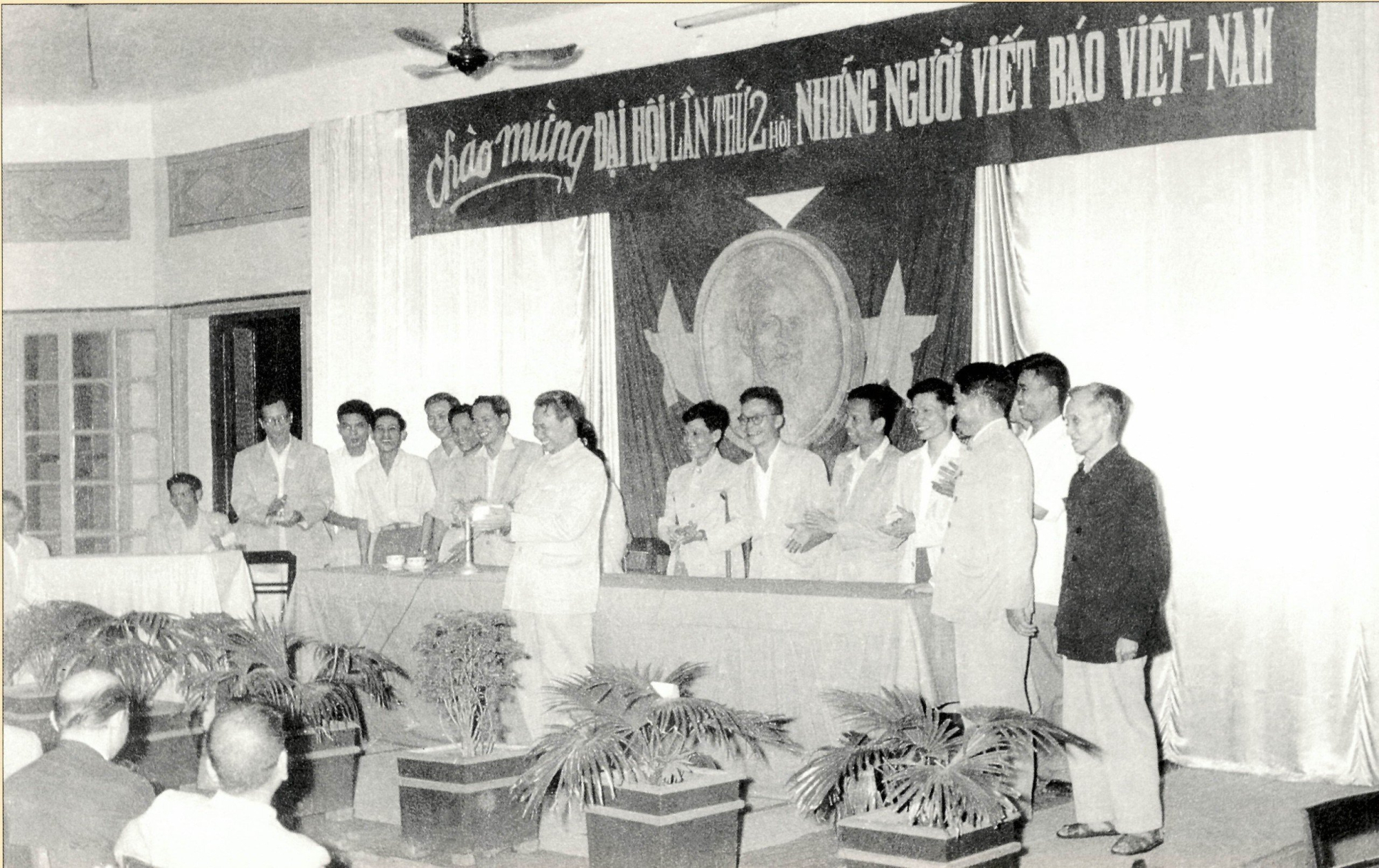
Journalist Xuan Thuy and colleagues at the 2nd Congress of the Vietnam Journalists Association, Hanoi, April 1959. Source: Vietnam Journalists Association.
Since 1944, Xuan Thuy was the editor-in-chief of the Cuu Quoc Newspaper; and also the main writer with the pen names Chu Lang, Tat Thang, Ngo Tat Thang, etc. During the key moments of the revolution, the accurate forecasting and high fighting spirit of the Cuu Quoc Newspaper had an extremely strong appeal and attraction to the masses.
The National Salvation Newspaper was published on October 21, 1944, which meant that before the Japanese coup against the French on March 9, 1945, Xuan Thuy had an article entitled “Indochina is about to become a battlefield” predicting: “Fascist Germany is dying in Europe. The Pacific front is starting to get intense... Not only will the British - American - Chinese troops kill the Japanese - French, but the Japanese - French will also kill each other... The enemy is weak. A good opportunity is coming. With the determination to fight, victory will definitely be ours”! Exactly two months later, on May 9, 1945, fascism was destroyed. Five months later, on August 19, 1945, the August Revolution in our country achieved complete victory!
Comrade Truong Chinh evaluated the Cuu Quoc Newspaper and editor Xuan Thuy: "Mr. Xuan Thuy was assigned by the Party to be directly in charge of the Cuu Quoc Newspaper from the period of secret activities and throughout the period of resistance against the French...
It was the only daily newspaper of our Party and people during this period. Just the fact that it was published regularly for 3,000 days under extremely fierce, arduous, and deprived war conditions can be said to be a miracle of our people. The National Salvation Newspaper is the pride of the Great Unity Newspaper today and also the common pride of our country's revolutionary press."
Revolutionary press organizer, first President of Vietnam Journalists Association
On the evening of August 19, 1945, the Provisional Revolutionary People's Committee of the North met, Xuan Thuy immediately proposed an urgent and strategic task for the future: Establishing the Northern Information Office and the National Radio Station. On August 22, 1945, at No. 4 Dinh Le, Hanoi, Xuan Thuy met with a number of young intellectuals and assigned Tran Kim Xuyen to be in charge of Vietnam News Agency; Tran Lam to be in charge of the Voice of Vietnam. On August 23, 1945, VNTTX broadcast its first news bulletin in four languages: Vietnamese, Chinese, English, and French. On September 7, 1945, the Voice of Vietnam broadcast its first Vietnamese radio broadcast worldwide... That result demonstrated Xuan Thuy's quickness and determination in organizing the talented press.
At the same time, as the person in charge of propaganda of the Viet Minh General Department, comrade Xuan Thuy directly invited intellectual Nguyen Tuong Phuong - Editor of Tri Tan magazine to the headquarters of Cuu Quoc Newspaper, saying: "Now is the time for us journalists to gather into one organization, regardless of whether it is a mass newspaper or a private newspaper... I asked for President Ho Chi Minh's opinion. He welcomed it and said: "Journalists are also soldiers. Those who hold pens, those who hold guns, those who hold swords, unite in one Front to join the entire people in saving and building the country" ... "
On December 27, 1945, nearly 100 journalists in Hanoi met at the headquarters of the National Salvation Cultural Association to establish the Vietnam Press Group. Journalist Nguyen Tuong Phuong, Editor-in-Chief of Tri Tan Magazine, was elected as Chairman. This was the predecessor organization of the Vietnam Journalists Association. Due to the resistance war, the Vietnam Press Group dispersed. In order to have a press organization to serve the resistance war in time, the Provisional Resistance Press Group was established with Mr. Dang Thai Mai as Chairman.
By 1948, the Resistance Press Group was approved by the Ministry of Interior for its Charter and officially allowed to operate, with Xuan Thuy as Chairman.
On April 21, 1950, Xuan Thuy convened representatives of central press agencies stationed in the Viet Bac resistance zone to represent the press nationwide to organize a congress to establish the "Association of Vietnamese Journalists" at the Cuu Quoc Newspaper Hall. The congress elected journalist Xuan Thuy as President.
Decree No. 232 dated June 2, 1950 of the Ministry of Interior signed by Minister Phan Ke Toai clearly stated: "In accordance with the application for the establishment of the Association of Vietnamese Journalists by Mr. Xuan Thuy, Editor-in-Chief of the National Salvation Newspaper... The Association of Vietnamese Journalists is now allowed to be established and operate according to the Charter prescribed in this Decree." This is the historical basis to prove that Xuan Thuy was the founder of the Vietnam Journalists Association. Journalist Xuan Thuy held the position of President of the Vietnam Journalists Association for two terms, from 1950-1962.
When the country was unified, on July 7, 1976, as Secretary of the Party Central Committee, Xuan Thuy presided over the merger of the Vietnam Journalists Association with the Association of Patriotic and Democratic Journalists of South Vietnam into the current Vietnam Journalists Association. In 1975, the South was completely liberated, the country was unified, and the country was reunited.
In March 1977, Xuan Thuy presided over the merger of the National Salvation Newspaper and the Liberation Newspaper. He named the newspaper “Dai Doan Ket” to engrave Uncle Ho’s teachings “Solidarity, great solidarity, success, great success”. In 1949, as a Standing Member of the Standing Committee of the Viet Minh General Department and Chairman of the Resistance Press Group, Xuan Thuy successfully organized the Huynh Thuc Khang Journalism School. Although only one class was trained, the Huynh Thuc Khang Journalism School, with Xuan Thuy in charge and as a lecturer, trained many journalism cadres to serve the resistance and left valuable experiences for journalism training schools later.
As a journalist, Xuan Thuy understood very well the role of the press in public opinion, so when he was appointed as Head of the negotiating delegation of the Government of the Democratic Republic of Vietnam at the Paris Conference, he selected and brought along a group of excellent journalists such as Nguyen Minh Vy, Nguyen Thanh Le, Ly Van Sau, Hong Ha, Ha Dang, Nguyen Huu Chinh, Hoang Phong, Le Binh, Xuan Oanh, and many other talented journalists. These press activities and public opinion mobilization contributed significantly to creating an unprecedentedly large "world people's solidarity front", a massive anti-war movement right in the heart of the United States. This was also an equally important reason for the success of the Paris Conference on Vietnam - "defeating the Americans" to "defeat the puppet regime" in the Spring of 1975, and unifying the country.
Although he worked in many fields, perhaps journalism was the field he was most passionate about and devoted his whole life to. In his youth, he started his revolutionary activities as a journalist. On the afternoon of June 18, 1985, in a pouring rain, his heart suddenly stopped beating, causing him to collapse on his desk, in front of the unfinished manuscript of "The Journey of the National Salvation Newspaper". Many of his noble plans were not realized when his life stopped at the age of 73, but Xuan Thuy's journalism career, the revolutionary path of dedication to the nation following Uncle Ho of Xuan Thuy, of generations of his fathers and brothers, still flows forever with the country, shining forever in the history of Vietnamese journalism.
Nguyen Si Dai
Source


![[Photo] Da Nang: Hundreds of people join hands to clean up a vital tourist route after storm No. 13](https://vphoto.vietnam.vn/thumb/1200x675/vietnam/resource/IMAGE/2025/11/07/1762491638903_image-3-1353-jpg.webp)





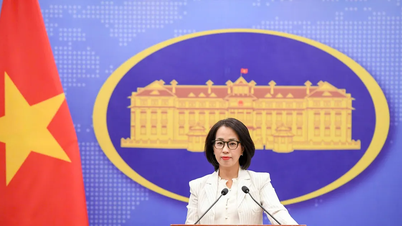

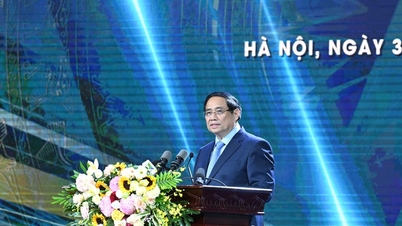

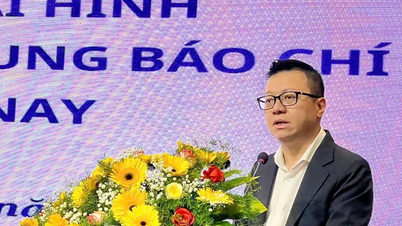
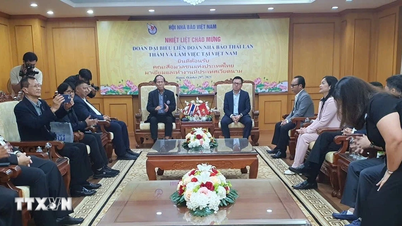



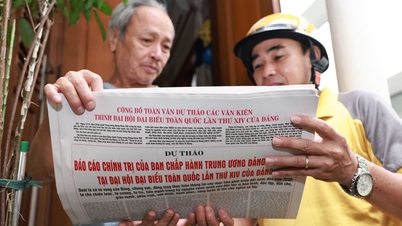














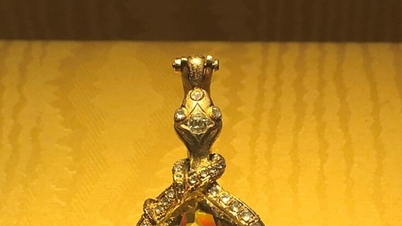


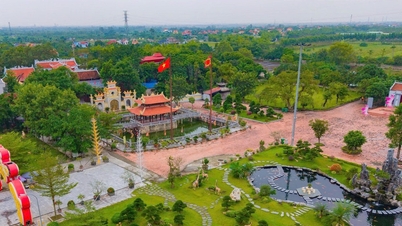





































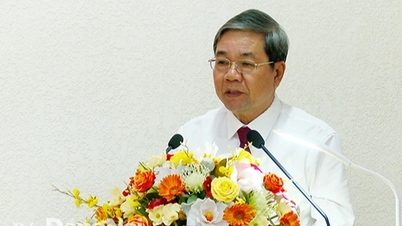
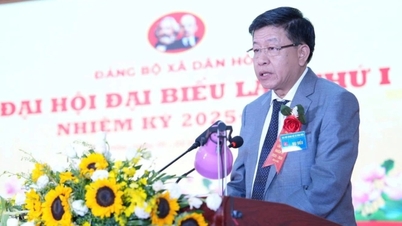



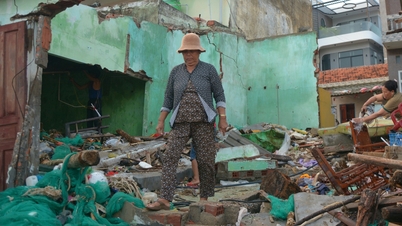



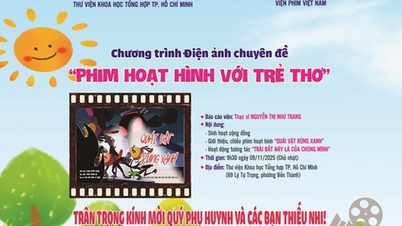

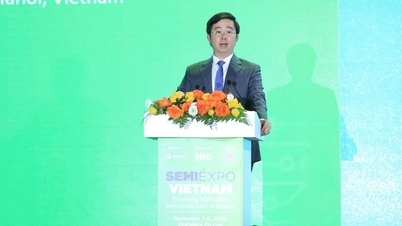

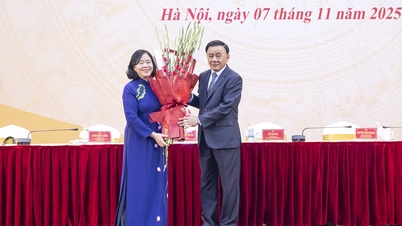


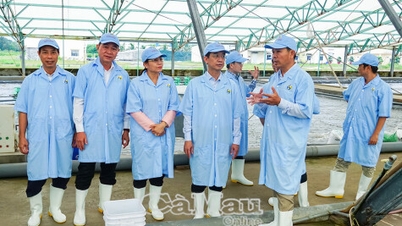




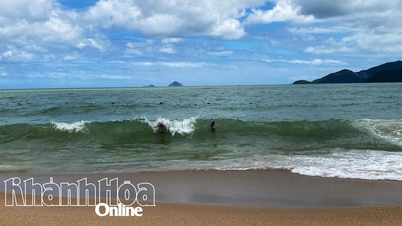















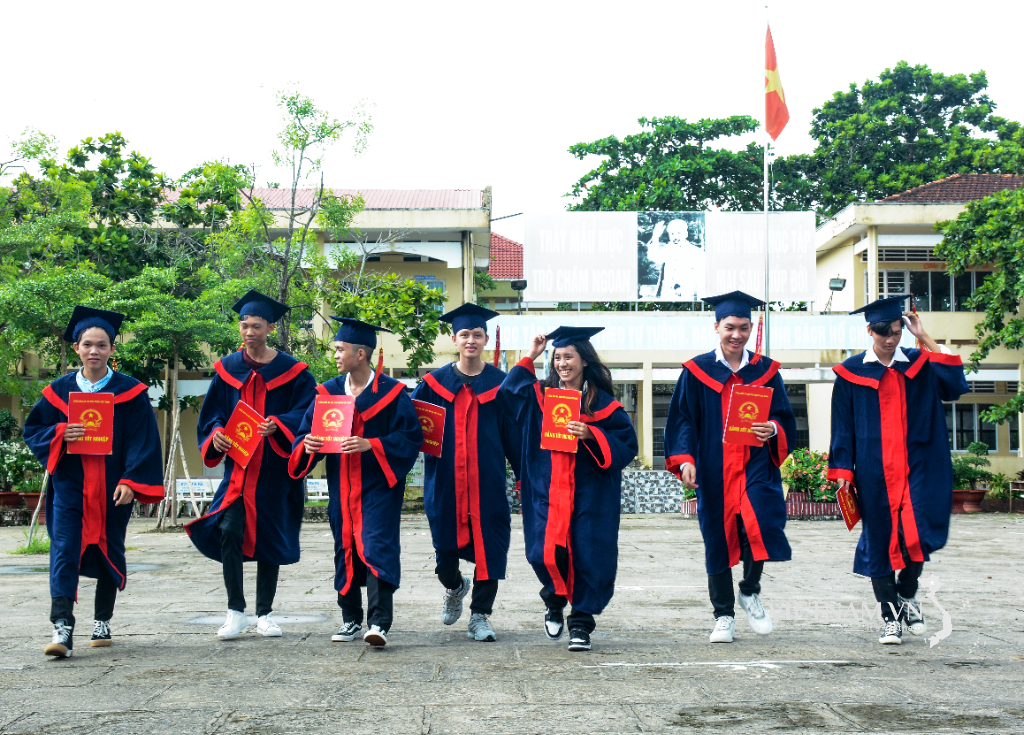

Comment (0)